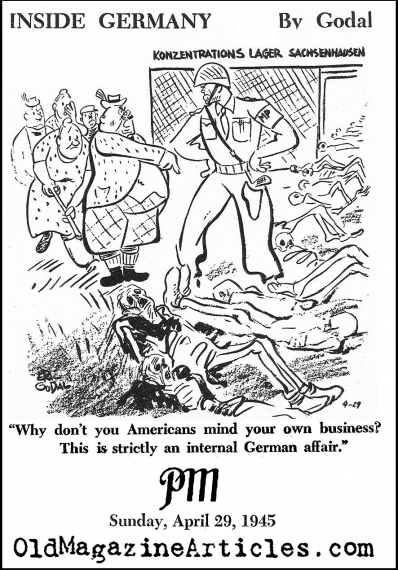Do the Germans Know They’re Licked?
(PM Tabloid, 1945)
“The German Army has been defeated, but the German murderers are still murderers, the Junkers are still Junkers and they are still Nazis – and all of them are looking ahead to the next war….Here is what the Germans, whose commanders begged for mercy at the signing of the surrender, did in the 24 hours just before and after the formal deadline for capitulation…”

